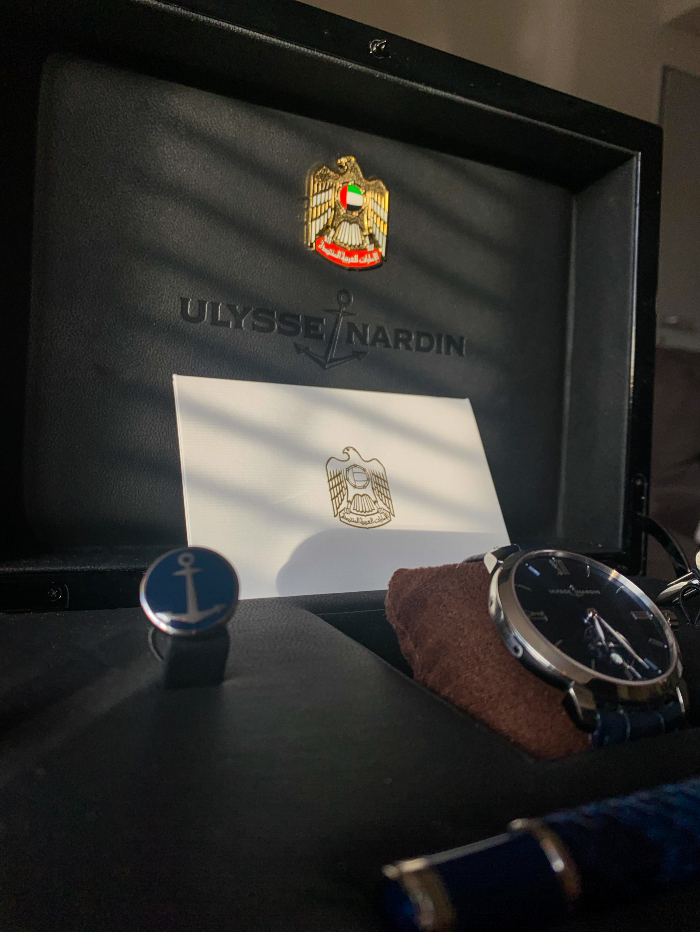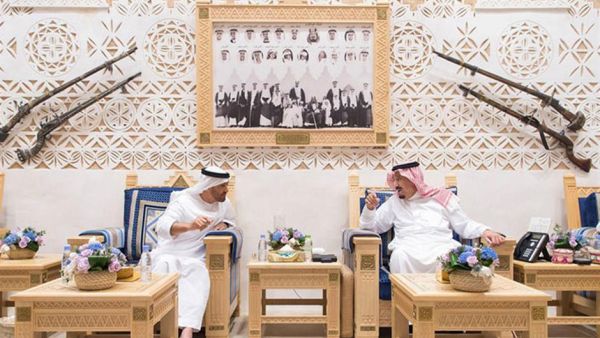By Dr. Nicolai Due-Gundersen and Dr. Francis Owtram
The Libyan strongman wanted to push the image of proud Bedouin roots. The US Government refused his request to erect his tent close to the Libyan embassy, so Gaddafi turned to future President Trump’s New York estate. The symbolism was striking and polysemic: Libya’s Brotherly Leader maintained his traditional roots while abroad and at the same time had access to (and sycophancy from) one of America’s leading business moguls who would soon enter politics.
It was a display of eccentricity and authority. The same trip saw Gaddafi issue cash to loyal staff for a shopping spree. But that was before the Arab Spring, the series of movements that brutally removed dictators and demanded accountability from rulers. After 2011, the display of ostentatious behaviour and wealth may no longer be a sign of authority but an invitation to be overthrown.
As Arab economies shrink under COVID, autocrats must carefully balance state austerity with personal austerity.
While the Arab Spring put the most pressure on republicans, royals have still been targeted for expensive tastes. Amid accusations that Queen Rania of Jordan had a wardrobe worth over 300,000 USD, the monarch was forced to defend her spending habits.
An official statement from Her Majesty delivered via Facebook implied that some of her clothing was loaned or gifted. “The focus on clothing and spending [of] wives of leaders in many countries and accusing them of wastefulness-whether right or wrong-is not new and has been exploited as a political tool."
Leaders welcomed after the Arab Spring have also been grilled, even as they tighten their grip on power. When Egypt’s Sisi was spotted wearing a 60,000 USD Swiss Patek Philippe watch to Friday prayers, furious Egyptians took to Twitter.
“Remember when Sisi called for austerity? Well, it doesn’t look like he’s leading by example,” wrote one user.
“Water in your fridge…and a luxurious watch on your wrist,” observed another. It is not without irony that said comment parallels slogans against Mubarak before his overthrow, pointing out that “while [the president] wears the latest fashion trends, ten of us sleep in a stuffy room.”
Many human rights activists were deeply concerned by the politics behind such gift-giving.
Non-democratic leaders are no strangers to lavish lifestyles, even as they bill themselves as reformers.
For some states, a ruling bargain funded by petrodollars should allow leaders to do as they please and wear as they please. Yet, as the MBSs of the Arab world insist on Visions 2030 or 2040, the necessary economic diversification can only mean that this social contract must change, with fewer benefits meaning more transparency and citizen involvement.
As Arab economies shrink under COVID, autocrats must carefully balance state austerity with personal austerity. Accountability is scrutinising even the most absolute ruler, and fear and force cannot compete with Instagram and Twitter. What leaders wear matters, and as citizens demand a say in how money is spent, many emperors will have to change their clothes and alter the use of (luxury) gift-giving as a form of diplomacy and political legitimacy.
Diamonds are a King’s Best Friend

Gifts from the UAE's Deputy Prime Minister Mansour bin Zayed Al Nahyan to an American businessman between 2018 and 2019 (Courtesy of Kevin D. Jack)
The year 2017 saw excess consumption by Gulf leaders come under increasing scrutiny.
The purchase by Saudi Crown Prince MBS of a Da Vinci painting for almost half a billion dollars was compounded by a more worrying trend of Arab monarchs gifting luxury items to UK foreign ministers.
In July of that year, Oman’s then-Foreign Minister Yusuf al-Alawi gifted then-UK Foreign Secretary Boris Johnson Caspian Caviar worth more than 1,000 USD. Alistair Burt, the UK’s Minister of State for the Middle East received his own gift that month from Kuwait’s Foreign Ministry: a Rolex watch worth almost 8,000 USD.
Many human rights activists were deeply concerned by the politics behind such gift-giving. “Many of these regimes have consistently repressed democracy and violated human rights,” explains Sayed Ahmed Alwadaei, Director of the Bahrain Institute for Rights and Democracy. “These lavish gifts are a transparent ploy to influence the UK’s foreign policy so that it favours the regimes rather than the people of the Gulf.”
Gift-giving has also been used domestically to symbolise the legitimacy and power of a new regime.
.jpg)
A special watch from the UAE's Deputy Prime Minister Mansour bin Zayed Al Nahyan to an American businessman between 2018 and 2019 (Courtesy of Kevin D. Jack)
In Oman, the late Sultan Qaboos overthrew his father in a 1970 coup and was forced to wage a civil war (1970-1976). As unrest came to an end, Qaboos used luxury timepieces to recognise his new government and those who helped him gain and maintain power.
“For the Sultan, those two interests-diplomacy and horology-were interlinked,” explains Charlie Burton of GQ Magazine. “He was an enthusiastic giver of watches, many of which had specially commissioned dials featuring the Omani royal crest: a “khanjar” dagger laid over crossed swords.”
The khanjar symbolised a new, united Oman. More importantly, it symbolised an Oman united under Qaboos, and therefore any object engraved with the khanjar was a political gift that recognised his leadership as the sole legitimate authority after a war that had been provoked by rival claims to Oman’s territory.
In addition, Qaboos used such watches to subtly acknowledge the help of British military figures in his early years of rule.
“Recipients of these special pieces included members of the British Armed Forces, which helped [Qaboos] consolidate power, ” confirms Burton. “Of particular note are those presented to SAS soldiers for their help in quelling the Dhofar Uprising [in the south of Oman] in the 1970s.”
.jpg)
King Hussein and Abdullah II have both worn models by Breitling, a Swiss brand noted for aviation and military watches. Pictured above are two examples of popular Breitling pieces (Courtesy of Nicolai Due-Gundersen)
For some autocrats, gift-giving was less about subtle thanks or emerging legitimacy and more a direct reminder of who was boss.
Ariel Adams, watch collector and founder of luxury timepiece blog, Ablogtowatch.com explains. “Saddam Hussein and Gaddafi were each known to order watches (of various quality levels) to give out as gifts to various top team members. I think the irony was that the recipients of the watches were probably expected to wear them as a result - which was particularly funny when the watch doesn't just have a state emblem on it, but the face of a leader on it."
"I think part of the strategy of many of these watches was less about a gift and more about a way of holding on to power and reminding people who was in charge," Adams continues. "Rolex stopped customizing watches in the 1990s. But others have done so more recently such as Chopard. A few years ago, I remember brands sometimes got very excited when getting a large private order from a Middle East or Asian country - most always from leaders with questionable human rights records.”
With the Arab Spring, perhaps it’s no coincidence that the extent of Qaboos’ luxury watch collection was not revealed until after his death, with some items like a Breguet clock valued at over 6 million USD.
Exiled dictators like Ben Ali could only watch as their luxury possessions were auctioned off, including Ferraris, diamond-studded pens and gold Rolexes.
For surviving rulers, the Arab Spring was a warning. In Jordan, the ruling Hashemites have appeared successively frugal. While King Hussein enjoyed sports cars and expensive watches, his grandson, Crown Prince Hussein wears a modest G-Shock for 89 USD.
From Revolution to Coronavirus

Watches with the royal Hashemite crown are esteemed by collectors. The royal crown of the Hashemites is here featured on a dial for Swiss brand Breitling. Breitling watches with the Hashemite crest are found in some watch dealers in Jordan, and jewelry featuring the crown are worn by some as status symbols.(Courtesy of Collector David Budd)
As COVID-19 deepens inequality, even oil states are struggling to maintain popular living standards. Reforms that require economic diversification will be threatened.
If leaders like MBS insist on tightening belts, unrest may be imminent.
Austerity measures “are risky for an absolute monarchy that has worked to guarantee affluent lifestyles for its citizens in exchange for obedience,” insists analyst Jonathan Fenton-Harvey.
“The government’s response appears to place a disproportionately heavy burden on everyday Saudis rather than the political and economic elite, which could foment popular unrest."
In the Gulf, however, some analysts blame both the state for wasting oil wealth and citizens for being bought off, with decades of largesse resulting in citizens who cannot accept fiscal reality.
After the Arab Spring and during COVID, the austere autocrat is wiser than the Rolex republican, as Sisi is no doubt discovering amid new protests during a pandemic and even Egyptians echoing Tunisia’s Bouazizi through self-immolation in response to poverty.
In the Gulf, however, some analysts blame both the state for wasting oil wealth and citizens for being bought off, with decades of largesse resulting in citizens who cannot accept fiscal reality.
“The belief system in Kuwait is that we’re rich for infinity,” says Fawaz Al-Sirri, head of political and financial communications firm Bensirri. “We’re going to wake up one day and realize we went through all our savings, not because we didn't check our bank statement but because we looked at it and said, it's probably a bank glitch, and then bought the latest Rolex.”
In any event, if austerity is inevitable leaders must accept restrictions on their own gift-giving and spending habits. If they don’t lead by example, they will be revealed as emperors with no clothes.









